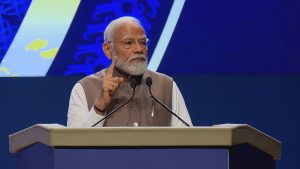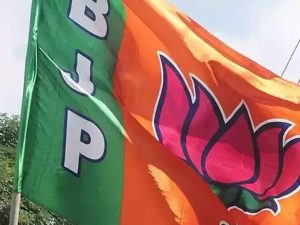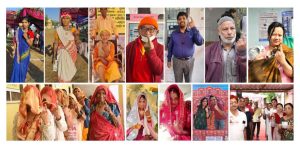Patna, July 21: The death of four people in two incidents of mob lynching in Bihar on Friday once again highlighted the violent trend growing up in north India during the recent times.
Three alleged cattle lifters were lynched at Pithori Nandlal Tola in Saran district by the villagers and one alleged bank robber was beaten to death in Vaishali district, both in north Bihar, within a span of 10 hours.
Chief Minister Nitish Kumar however downplayed the incident and said it was not mob lynching. About the lynching of three men Naushad Qureshi, Raju Nutt and Biresh Nutt, he said, “It is unfortunate incident but it should not be seen as mob lynching. They were caught red handed while stealing cattle.”
Union Minister of state for health Ashwini Kumar Choubey too had similar views ad said that “small” incidents should not be termed as mob lynching.
BJP’s senior leader R K Sinha however, has a different take on mob lynching syndrome. “Inordinate delay in judicial system is a major reason behind tendency of the people to take law into their own hands. The public anger is growing so is increasing the incidents of mob lynching,” said the Rajya Sabha member.
Sinha referred to the Nirbhaya gang rape and murder incident a few years back and said that the accused persons had been awarded capital punishment but none of them was hanged so far.
“Such delays in judicial process lead to public unrest and the tendency to take law into their own hands grows,” he added.
In the pretext of the observation that common people were losing faith in the judiciary, one could recall the popularity of “Kangaroo courts” in the countryside of central Bihar districts.
These “courts” regularly held by the Maoist outfits in 80’s and early 90’s got enormous popularity because the guilty persons were punished on the spot after quick trial and people were getting instant justice.
Social scientist D M Diwakar, however, felt the mob lynching was fallout of the “authoritarian” administration and peoples’ tendency to take law into their own hands.
“In the guise of cultural wings of some parties and in the name of moral policing and gau raksha (cow protection) anti-social elements are more active in violence and becoming law unto themselves,” said Diwakar and alleged that such people get state patronage and never punished.
The term lynching, defined as a form of violence in which a mob under the pretext of administering justice without trial, came from America. The term is derived from the name of Patriot Charles Lynch (1736-96), a Virginia planter and justice of the peace who during the American Revolution headed an irregular court formed to punish offenders.





